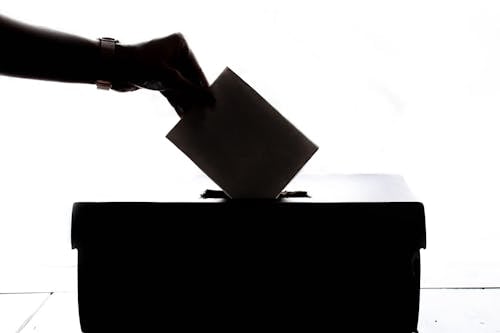A few months before a major election, you will begin to see
commercials for politicians all reassuring you that your vote is safe if in
their hands. Some use their 30 seconds of screen time to demolish the reputation
of competitors. Some show their families and an overly happy community working toward
a common goal. Some fill their time with graphs and statistics, promising to make
big change as soon as they are elected. Regardless of the content, you could
easily see 10 commercials for the same candidate within a few hours. Lucky for
us, it doesn’t stop there. Your twitter feed, Instagram story ads, and website
pop-ups could all be polluted with ads, promises, videos, and surveys from hopeful
politicians for months.
In the midst of this flood of propaganda, a major social
class obstacle is brought to light. Candidates with billions in their pockets
could easily afford to make sure you see their face constantly to the point where
you become less aware that other candidates are even running for the position. Meanwhile,
other candidates with less money that are an equally good choice simply can’t
compete or get their message far past local communities. As much as social
media can be utilized as a tool, it seems to be weaponized as a barrier far more
often.
I’d like to clarify that the social class obstacle within
the realm of politics is far from new. There will always be people running who
can not afford the campaigning, costs of rallies, flyers, tee-shirts,
newsletters, etc. However, it is difficult to disregard the effect that social
media has in amplifying these abilities. Instead of knocking on doors, candidates
now pay for a suggested tweet, one which could be shared to millions in a
matter of hours. Instead of a billboard along the highway for local people to see
on their daily commute, a candidate could purchase an ad on a site visited by
millions a day and exponentially grow awareness about their mission. The price
of these ads, commercials, and suggested tweets is quite expensive. The NewYorker reports that over a year before the 2016 election, candidates had already
invested over 63 million dollars on marketing on popular sites such as Google and
Facebook. Needless to say, the likelihood of an average American becoming a well-known
candidate in a modern election is slim to none. The monetary requirements to advertise
and market have become so unreachable that only a few names will even touch the
ballot.
Now let’s consider if the message being spread to the public
is one full of half-truths and even false accusations about competitors. Not
only does this have a profound impact on the public perception of said candidate,
but it becomes a claim that they cannot combat with the same amount of
coverage. The most an individual could do if ads were created with false
information against them would be to sue for defamation. We might think that
executives who run these platforms would make sure that information with such
immense reach and spreading power was fact-checked. However, when asked about fact-checking
on political statements, CEO of Facebook, Mark Zucherberg made the vague
statement that “If you were to run an ad that had a lie, that would be bad” without
clarifying whether Facebook had any procedures to prohibit such advertising-
they do not. Although it is difficult to pinpoint who is to blame for this
abuse of social media, it can be better thought of as several contributors (candidates,
lawmakers, social media executives) glancing over an issue as it manifests.
At what point does this advantage based on classism cross the line of
free expression and become a weaponized tactic, not only removing competition
but distorting voters’ field of vision? It is necessary to evaluate what we information
we are being faced with daily. Granted, it is of equal importance to notice what,
or who, is missing due to this political pollution. By overwhelming our feeds, candidates
are intentionally pushing users into a certain way of thinking, and later,
voting. Users’ subconscious bias formed by seeing repeated messages for months leads
them to thinking there are fewer options available that what really exists.




No comments:
Post a Comment